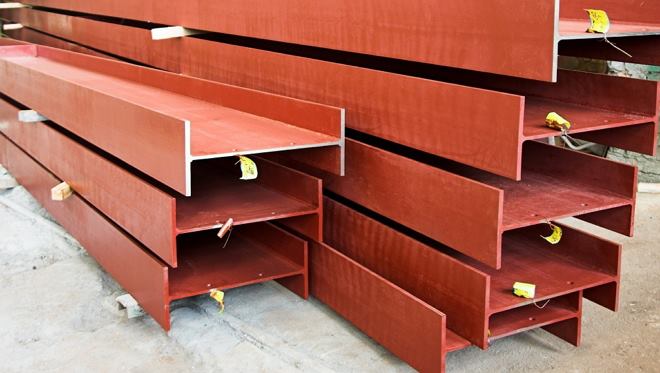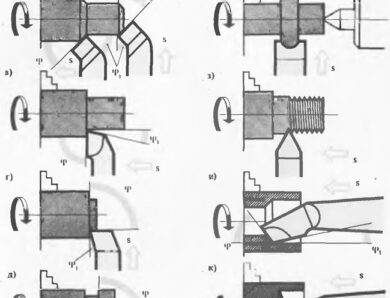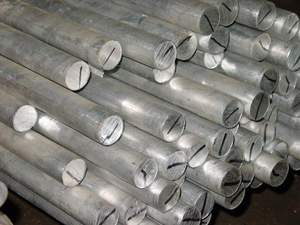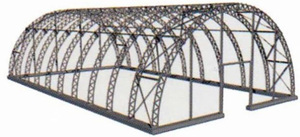Features of spot welding of batteries and assembly of the welding machine by own hands
Butt welding of parts is the connection of parts to each other by heat. It is released when a large current passes through the joints. A distinctive feature of this type of welding is the presence of pulsed current flowing.
Such pulses are quite short, and are most often measured in fractions of a second.
Today, butt welding is widely used for industrial and domestic purposes. Houses use it for repair of home appliances or for amateur design. Thanks to the use of butt welding, you can solve a large number of tasks and securely attach all the terminals to the batteries. This will help you quickly and easily replace the battery in your laptop or other devices. In the last few years, such a quarrel has begun to enjoy high demand and incredible popularity.
What is the peculiarity of spot welding of batteries
To securely fasten a thin metal plate to the main battery terminal, you need to use current pulses with the following characteristics:
- The duration cannot exceed 450 milliseconds. It is desirable to prefer those devices, where you can adjust the duration of welding.
- Electric welding current. Its parameters must be from 400 to 1200 ampere.
Advantages of condenser welding
Using this type of welding, electrical energy will accumulate in the capacitor field, which is equipped with large tanks. They are charged in most cases from a special AC rectifier. When the capacitor is charging, then all the collected energy will be converted into heat. During this action, the joints will heat up and interact.
There are several important advantages of this welding method:
- Masters have the opportunity to dose the information themselves, incoming energy;
- Slight pulse release times up to 1.0 milliseconds;
- Masters will be able to perform welding work on thin sheets of metal;
- Small amount of power consumption.
There are two main types of capacitor welding:
- Impact or transformerless. The charge is carried out from the main source of alternating current by means of a rectifying diode. The design is connected directly, to weld parts as efficiently as possible.
- Transformer welding method. The charge occurs by opening the contacts of the switch. Induction current is localized in the secondary winding and thus heats the joints with the metal surface.
Technological process of welding batteries
Electrodes from copper rods are used for self-made point devices. Very convenient to work rods from ordinary soldering irons. The length of the wire between the transformer and the electrodes should be small. The autopsy can not be low and equal to the diameter of the electrodes.
It is advisable to wear high-quality copper lugs on all ends of the wires. They are well soldered for the most accurate work. During normal spot welding all parts, which need to be interconnected are clamped by electrodes. To weld the output to the battery, you must use another method of technology.
On the device, the electrodes are located parallel to each other and maintain a distance of about five millimeters. The future location of the output is carefully pressed by the electrodes to the positive value of the battery. When you press the start button, the welding machine is able to generate the desired current pulse.
All metal strips must be welded to the battery housing as carefully and securely as possible, where there are places of pressing the electrode. Today, everyone will be able to buy welding equipment in any store. But masters prefer to create their own devices, which will meet all requirements.
The process of making a welding machine to create your own homemade products and take into account all the necessary characteristics - is a simple job. You need to have the skills to read diagrams, work with a soldering iron, as well as other tools.
Features of self-made welding machine
There are a huge number of homemade welding inverters, which are equipped with control boards. They allow you to stabilize the incoming voltage and constant current. Schemes were drawn up by folk masters, who studied in detail the principle of operation of the factory device. They transferred all design ideas to drawings, which were later posted on the Internet.
Simple welding transformers have one major drawback - they are weak arc stability, as well as low stabilization of the regime. All these characteristics depend on the possible fluctuations of the current in the electrical network. Welding inverters operate on a stabilized DC welding current, which is completely independent of voltage drops in the network. For this reason the rather reliable and steady arch is provided.
During welding, the devices can observe the minimum vagueness of metal surfaces. The main feature of modern models of welding equipment is the ability to manually change the input voltage. Homemade devices must be equipped with a switch, to perform welding with electrodes without much effort.
Self-made devices must be assembled correctly and in compliance with all established rules. At the same time technical characteristics should not differ from factory designs.
How to properly assemble a welding machine
Any model of the welding machine is equipped with correctly made internal schemes. If you comply with this requirement, then the device will continue to function efficiently and correctly. Particular attention is paid to design work.
Before you deal with the placement of schemes, to assemble a homemade welding machine you need to carefully study all the basic rules of installation of electrical equipment. It is also necessary to make a list of the main components of the device.
The following rules must be observed when assembling self-made welding devices:
- To reduce the size and weight of the inverter you need to use the most powerful field-effect transistor. In this technique, they act as a power switch.
- Conductor bundles are assembled from four wires.
- A special tape is used for insulation, masking tape or fluoroplastic strips.
- After performing insulation work, the conductors must be located on different sides of the housing. They must not come into contact with each other and fail during operation.
- Thermal sensors are located inside the radiators, because the heating temperature will be extremely high.
- To control the inverter you need to install a control marked PWM. Such details are ways to stabilize the voltage inside the arc with a single control channel. To calculate the amount of current you need to connect capacitors.
- When assembling the device with their own hands, craftsmen need to follow the scheme exactly, which is selected in advance for each individual sample.
As practice shows, then a large number of homemade inverter devices fail due to improper regulation of welding current.
List of components for assembly
During the installation and assembly work with your own hands you need to pay special attention to the following points:
-
Bad contacts and high voltage drops in the network. Such interference in most cases leads to a sharp rise in temperature at the cable connection. As a result of such negative influence the risk of breakage of the inverter increases.
- The most vulnerable part of the inverter is the terminal block, where the power welding cable is attached.
- Care must be taken to properly adjust the welding current, to prevent the welding arc from breaking during the operation of the inverter.
To assemble the power part of the board, you need to use the following details: capacitors and filter interfering, soft descent relay, integrated stabilizers, network rectifiers, cooler, current sensors, radiators and step-down transformer.
To make spot welding with your own hands requires the use of the following components:
- Power cord;
- Door handle;
- switches;
- Copper holders, which are marked under two contact electrodes. Such designs can be purchased at any hardware store, where there is a department of welding equipment;
- Thick single-core copper wires, which are used to make the contact electrode;
- Self-tapping screws for wooden structures or ordinary nails.
Zinc oxide vapors may be formed during spot welding of galvanized metals, which are harmful to inhalation. For this reason experts recommend to carry out welding works indoors, where you can ventilate or open windows. After combustion of contact electrodes in self-made devices they can be easily and quickly replaced with new ones.




